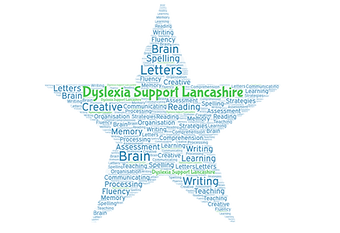.jpg)
.jpg)
Dyslexia Support Lancashire
Helen Nelson - Specialist Teacher and Assessor
BA Hons, Post Graduate Diploma SpLD, AMBDA, APC, MDG





0785 2154520



What is Dyslexia ?
The most commonly recognised description of dyslexia can be found in Sir Jim Rose’s Report on ‘Identifying and Teaching Children and Young People with Dyslexia and Literacy Difficulties’, written in 2009, as follows:
Dyslexia is a learning difficulty that primarily affects the skills involved in accurate and fluent word reading and spelling. Characteristic features of dyslexia are difficulties in:
phonological awareness (the ability to discriminate and manipulate speech sounds)
verbal memory
verbal processing speed
Dyslexia can occur across the range of intellectual abilities. It is best thought of as a continuum, not a distinct category, and there are no clear cut-off points. Co-occurring difficulties may be seen in aspects of language, motor co-ordination, mental calculation, concentration and personal organisation, but these are not, by themselves, markers of dyslexia. A good indication of the severity and persistence of dyslexic difficulties can be gained by examining how the individual responds or has responded to well-founded intervention.
Full Dyslexia Assessment and diagnosis
£415 face to face or online
(Can be used for application of DSA)
A full dyslexia assessment takes approximately 2-3 hours.
It includes a full range of tests including tests of underlying ability, cognitive processing, reading, writing and spelling.
A detailed report is included with diagnosis and key recommendations.
This can focus on primary and secondary pupils, College and University students or the Workplace.
This assessment and report can be used for application of Disabled Student Allowance (DSA).
Dyslexia Screening
£205 Face to face or online
This is a 1.5 hour dyslexia screening test. This includes a reduced number of tests which will identify strengths and challenges and identify if there may be traits of Dyslexia.
A short report is provided ( about 4-6 pages) and provides recommendations for parents and school. This can be combined with a dyscalculia screening for £405 but would then have to be face to face.